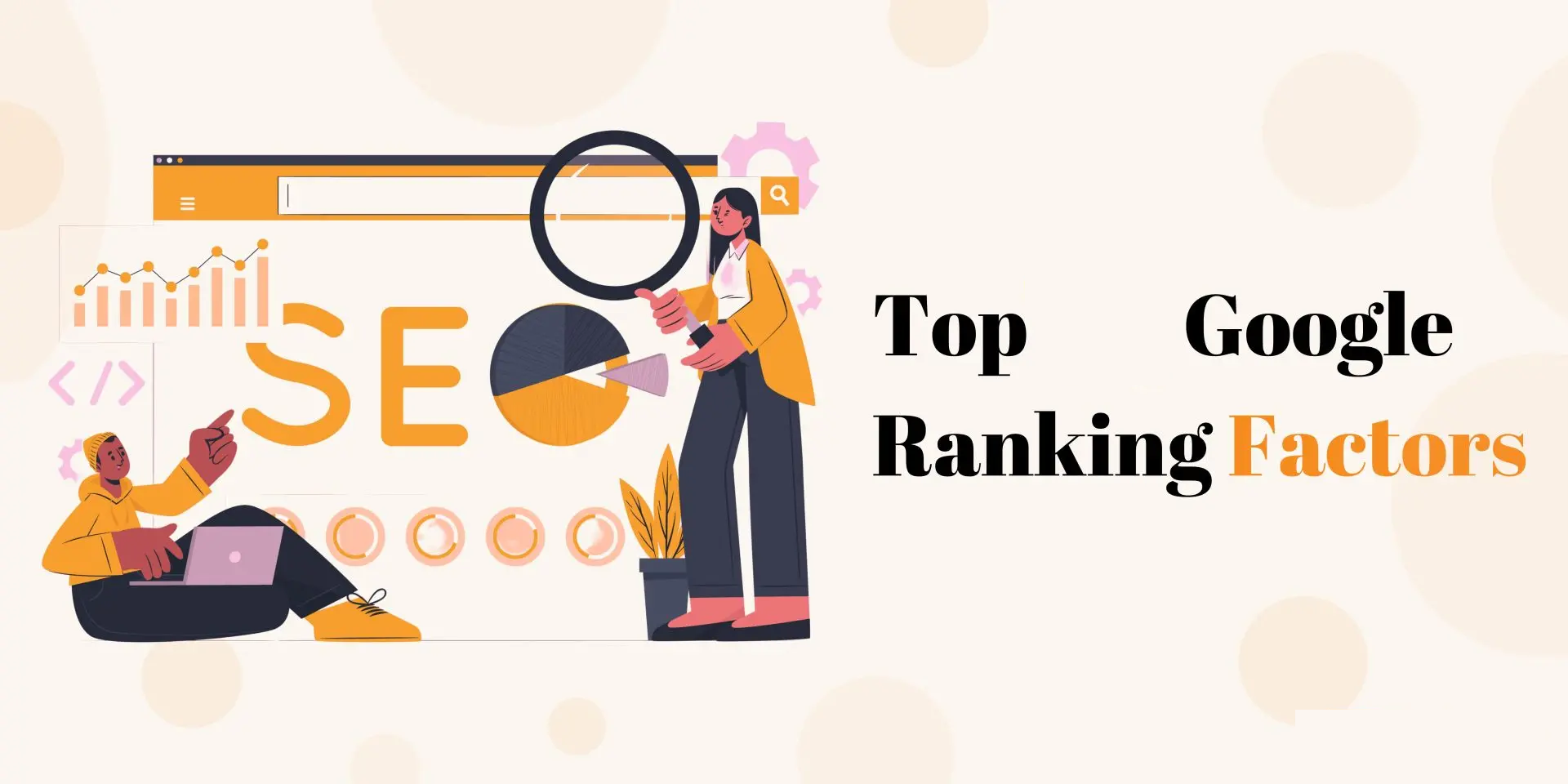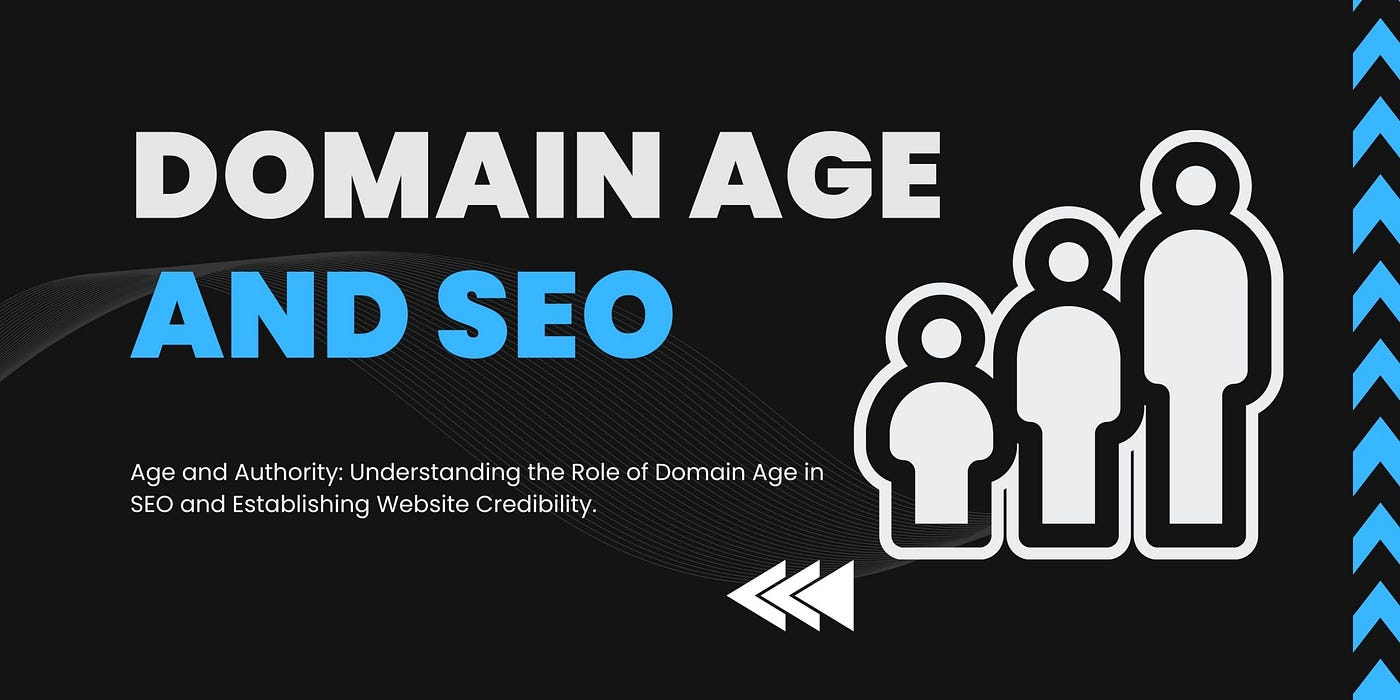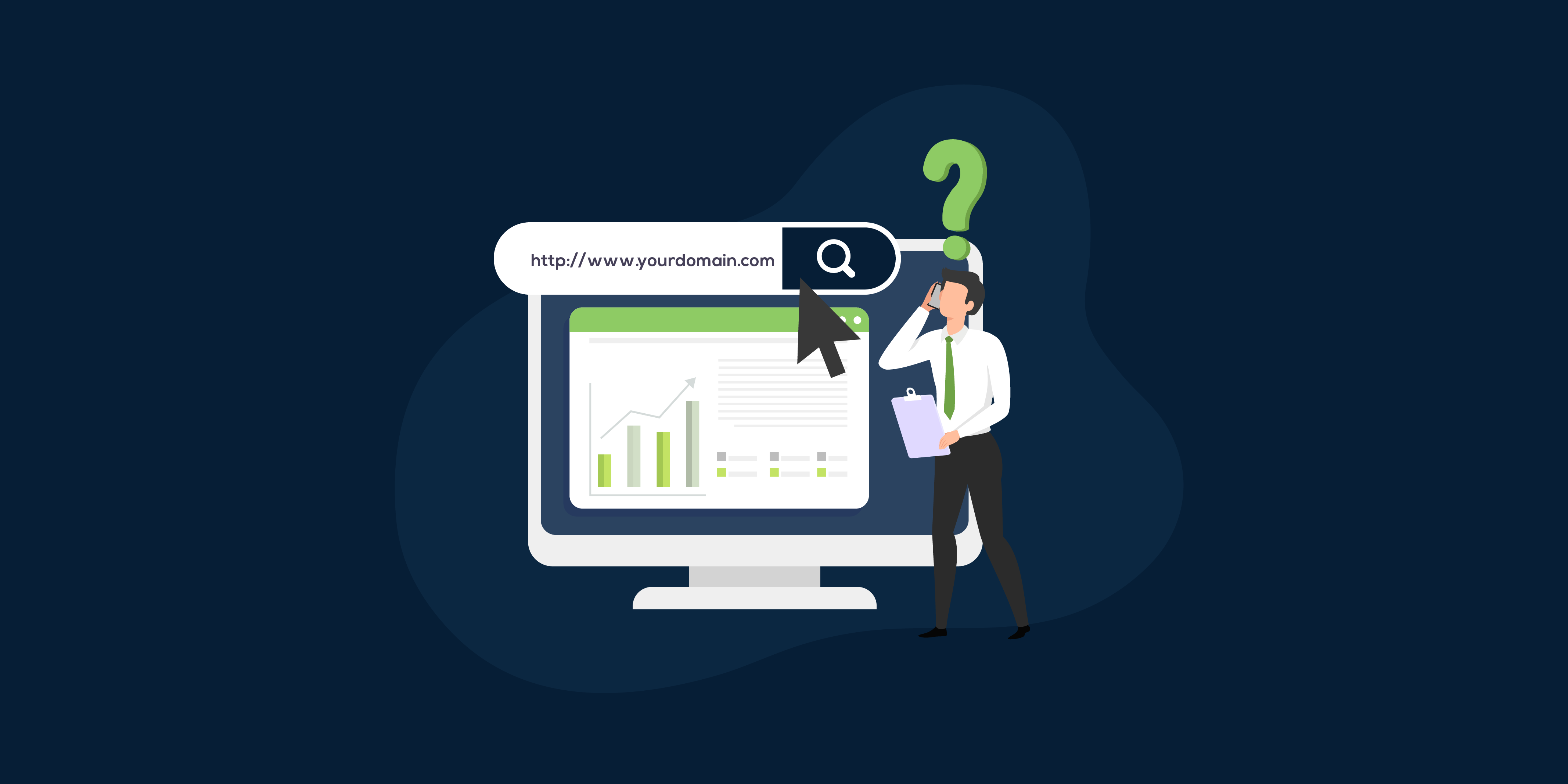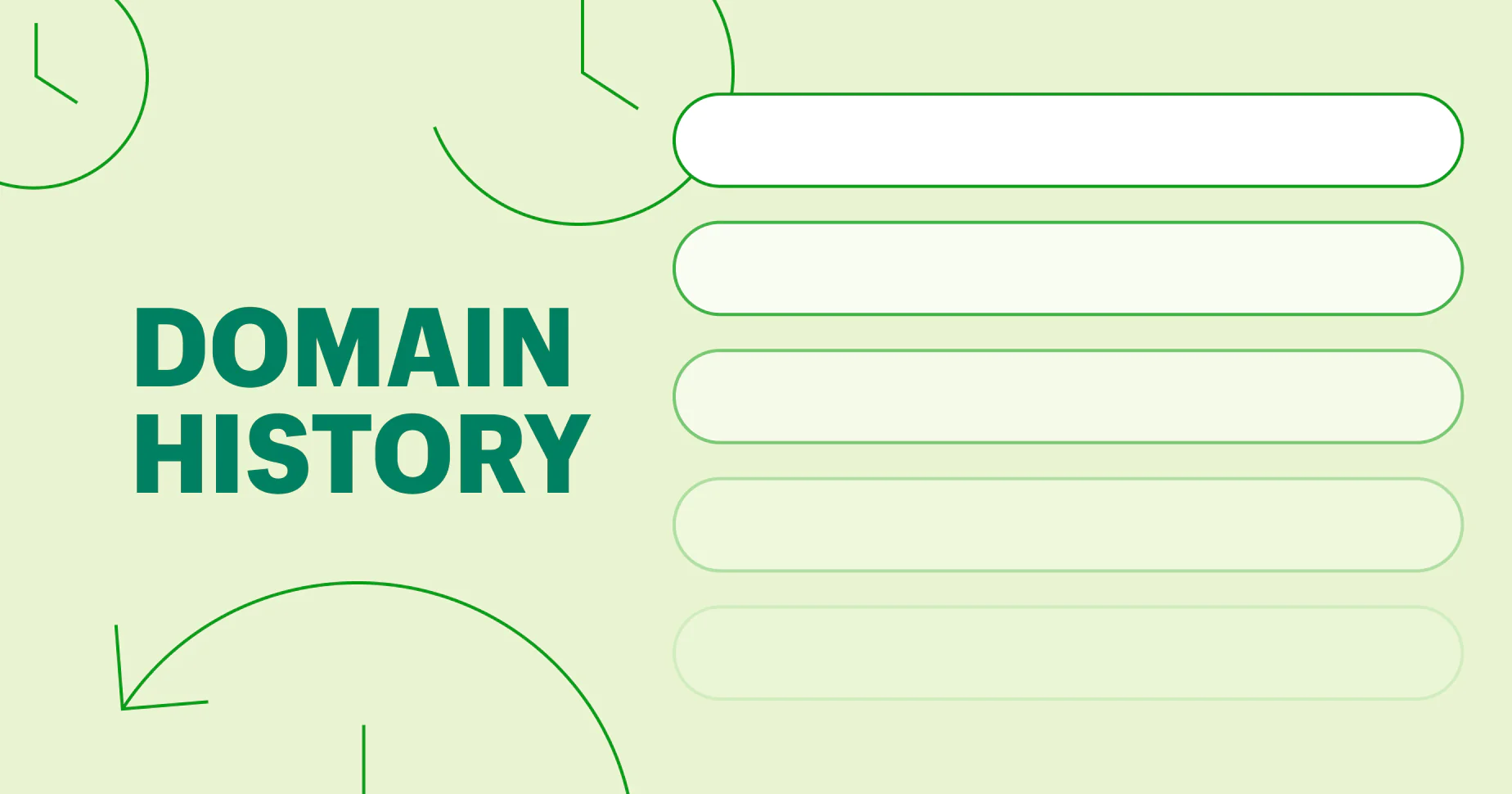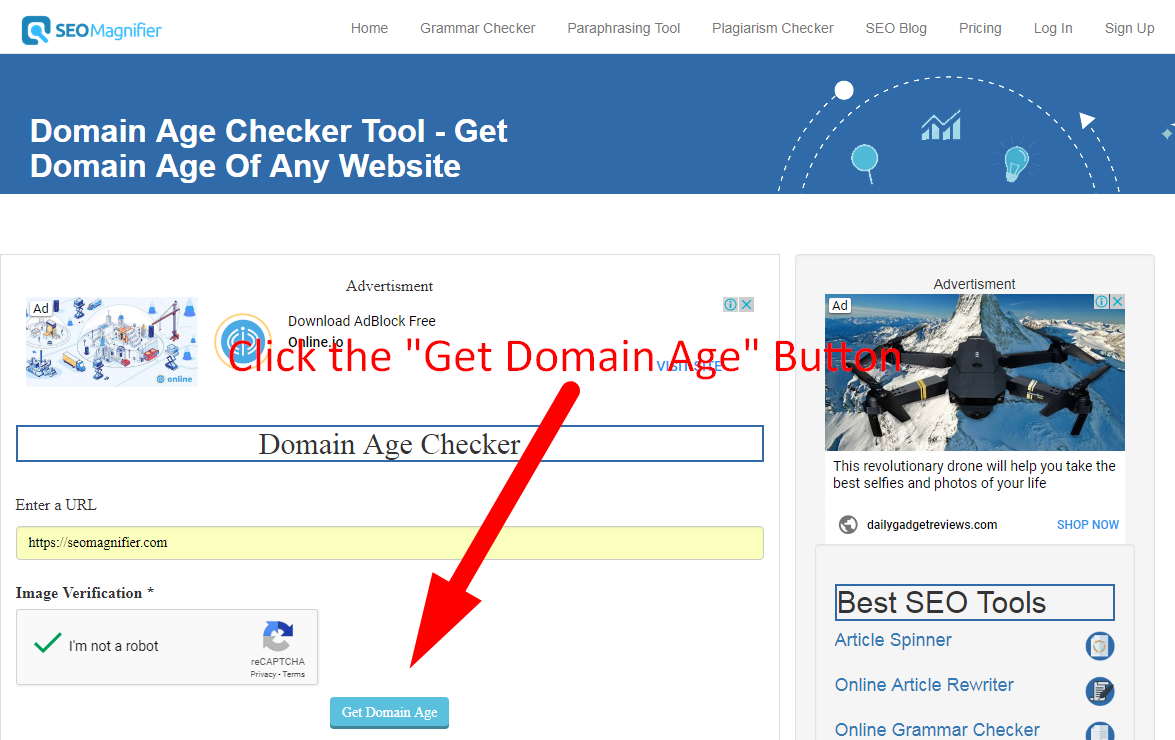
The history of a domain is more than just a digital footprint, it's the narrative that search engines scrutinize when determining a website's credibility and authority. Discover domain history affect seo rankings.Just like a seasoned veteran garners respect for their years of experience, a domain with a lengthy history tends to command attention in the virtual realm. Search Engine Optimization (SEO) rankings are profoundly impacted by this historical context.
Understanding Google's Ranking Factors
Google's search algorithm is a complex beast, constantly evolving and shrouded in some mystery. But understanding the key factors influencing your ranking can be the difference between languishing on page 10 and basking in the glory of position 1. Let's unveil these factors and explore how your domain's past plays a part:
On-Page SEO
- Content is King -High-quality, relevant, and engaging content that satisfies user intent reigns supreme. Think in-depth articles, informative guides, and compelling narratives.
- Keywords Make the Connections - Relevant keywords strategically woven into your content and title tags act as signposts for search engines to understand your page's topic.
- Technical Prowess -A lightning-fast website with mobile-friendliness and a clear structure ensures a smooth user experience, loved by both users and search engines.
Off-Page SEO
- Backlinks- The Vote of Confidence, Backlinks from reputable websites are like thumbs-up for your content, boosting your authority and trust in the eyes of Google.
- Social Signals - The Buzz Factor, Engage your audience on social media and encourage shares, likes, and mentions. Google takes social buzz into account.
- Local SEO - Claim Your Neighborhood, For local businesses, optimizing your Google My Business listing and NAP (Name, Address, Phone number) consistency across the web is crucial.
Domain History - The Ghost In The Machine
Your domain's past can linger like a digital footprint. If it hosted penalized content or witnessed shady SEO practices, it might carry negative baggage. However, Google's algorithms are becoming more nuanced, focusing on present efforts and the quality of your current content. Here's the good news:
- Rehabilitation is Possible - Google takes into account your efforts to clean up your website and build quality content. Time and consistent positive SEO practices can help overcome past sins.
- Fresh Start Options -Consider migrating your content to a clean domain if the baggage proves too heavy. However, weigh the pros and cons carefully as it can be a complex process.
Domain Age And SEO
For years, whispers of "domain age" haunted the SEO world, suggesting older websites magically outranked their younger counterparts. But is this just an SEO fairy tale, or is there truth to the age-old adage? Let's dive into the facts and uncover the myth versus reality:
Myth #1 - Older Domains Automatically Have Higher Rankings
Reality -Google, the search engine overlord, has repeatedly stated that domain age is not a direct ranking factor. John Mueller, a Google Search Advocate, has made it clear that age alone doesn't grant any SEO advantage. The focus, he reiterates, is on relevance, quality content, and user experience.
Evidence -Numerous case studies from SEO experts showcase young websites climbing the SERP ladder at breakneck speed, thanks to exceptional content and strategic optimization. Age might play a subtle role in establishing trust and familiarity, but it's far from a guaranteed golden ticket.
Myth #2 - Buying Old Domains Unlocks Instant SEO Magic
Reality -While purchasing an established domain with relevant backlinks might offer a slight head start, it's not a magic bullet. Google, aware of this practice, scrutinizes such domains for past penalties or shady SEO history. A tarnished past can outweigh any age advantage, leaving you with more baggage than benefit.
Evidence - SEO authorities caution against relying solely on domain age. Investing in creating high-quality content, earning organic backlinks, and building a strong brand reputation offer a far more sustainable and reliable path to SEO success.
Myth #3 - New Domains Are Doomed To SEO Purgatory
Reality -Fear not, young website! Fresh out of the oven doesn't mean SEO oblivion. Google's algorithms are refined to recognize and reward quality content regardless of age. Focus on creating valuable content, optimizing for relevant keywords, and building a loyal audience, and you'll see your rankings rise organically.
Evidence -Countless examples of young websites, fueled by smart SEO strategies and engaging content, have dominated the SERPs, proving that age is just a number in the world of search engine optimization.
The Takeaway
Domain age, while not a direct ranking factor, can subtly influence how users and search engines perceive your website. However, obsessing over it is a distraction from the true SEO heroes: high-quality content, user experience, and building a strong online presence.Focus on these and watch your website flourish, regardless of its birth certificate.
The Impact Of Historical Content And Links
A website's SEO performance isn't solely defined by its present efforts. Like a well-written novel, the chapters of its past, in the form of historical content and backlink profiles, can resonate and affect its current standing in the SERPs. Let's delve into their influence and explore the crucial distinction between quantity and quality when it comes to backlinks.
The Shadow Of Historical Content
- Content Quality and Relevance -Google values fresh, high-quality content that resonates with user intent. Past content, if outdated or irrelevant, can detract from the website's overall authority and trustworthiness, impacting its ranking potential.
- Penalty Scars - Penalized content from the past, even if removed, can leave a lingering mark on the website's reputation in Google's eyes. This can hinder ranking progress and require consistent, high-quality content creation to overcome the stigma.
- Topic Shifts and Relevancy -If a website has drastically shifted its focus from its historical content, it can confuse search engines and users, leading to ranking difficulties. Ensure your current content aligns with the website's core theme and target audience.
The Backlink Legacy
- The Power of Authority - Backlinks from high-authority websites act as votes of confidence, boosting the website's credibility and relevance in Google's eyes. A strong historical backlink profile can be a valuable asset, but...
- Quality Over Quantity -Not all backlinks are created equal. Links from spammy or irrelevant websites can actually harm your SEO. Google values the quality and relevance of backlinks, prioritizing those from trustworthy and authoritative sources.
- The Decay of Dormant Links -Links from websites that are no longer active or relevant lose their value over time. Diversifying your backlink profile with fresh, high-quality links is crucial to maintain ranking momentum.
Quantity Vs. Quality - A Backlink Balancing Act
- Quantity can be tempting -Accumulating large numbers of backlinks might seem like a quick path to SEO success. However, Google prioritizes quality over sheer quantity.
- Focusing on relevance - Seek backlinks from websites relevant to your niche and target audience. These links carry more weight and signal topical relevance to search engines.
- Building relationships -Cultivate genuine connections with other websites in your niche. Guest blogging, participating in online communities, and providing valuable content can naturally attract high-quality backlinks.
- Beware of the dark side -Avoid spammy link-building tactics like link farms or paid link schemes. These can result in penalties from Google and ultimately damage your SEO efforts.
Domain Ownership Changes - Do They Matter?
The question of whether domain ownership changes impact SEO is a nuanced one, with no simple yes or no answer. While Google doesn't directly penalize domain ownership changes, the transition can trigger a series of events that affect your ranking. Let's delve into the potential impacts and explore case studies and expert opinions to provide a comprehensive view:
Potential Negative Impacts
- Backlink Profile Disruption - If the previous owner had a strong backlink profile, a change in ownership could disrupt the flow of link juice and authority. This can lead to a temporary drop in ranking.
- Content Disruption -If the new owner drastically changes the website's content or focus, it can confuse users and search engines. This can lead to a loss of relevance and ranking decline.
- Technical Issues -During the transition, technical glitches or downtime can occur, impacting user experience and sending negative signals to search engines. This can lead to temporary ranking fluctuations.
Potential Positive Impacts
- Fresh Start and New Strategies -New ownership can bring fresh perspectives and SEO expertise, leading to improved content, backlinks, and technical optimization. This can ultimately boost rankings.
- Brand Revitalization - A well-executed rebranding campaign under new ownership can attract new audiences and improve website authority, leading to ranking improvements.
- Leveraging Existing Assets - If the previous owner had a strong domain authority, the new owner can leverage it by maintaining high-quality content and backlinks. This can help maintain or even improve rankings.
Case Studies And Expert Opinions
- Moz - Search engine expert Rand Fishkin conducted a study and found that domain ownership changes had a minimal impact on rankings, with most websites recovering within 6 months.
- Ahrefs -SEO specialist Ahrefs found that some websites experience significant ranking drops after ownership changes, while others see minimal or no impact. This highlights the importance of proper transition planning and execution.
- Search Engine Journal - SEO expert Marie Haynes emphasizes the importance of maintaining the website's core theme and target audience during ownership changes to minimize confusion and maintain ranking stability.
Recommendations For Minimizing Negative Impacts
- Communicate with Search Engines -Inform Google and other search engines about the ownership change through webmaster tools to ensure smooth transition and avoid penalties.
- Maintain High-Quality Content -Prioritize high-quality content creation and maintain existing valuable content to retain user engagement and signal relevance.
- Analyze and Fix Technical Issues -Conduct thorough technical audits and address any technical issues promptly to avoid negative user experience and search engine signals.
- Build Trust and Authority -Focus on building trust and authority through quality content, ethical link building, and positive user engagement to recover from any temporary ranking drops.
Recovering From A Negative Domain History
In the digital realm, redemption is possible, even for a domain burdened by a checkered past. Recovering from a negative SEO history requires a multi-pronged approach, a blend of strategic cleansing and proactive content creation. Here's your roadmap to reclaiming your rightful place in the SERPs:
Step 1 - Diagnose The Problem
- Backlink Audit -Use tools like Ahrefs or SEMrush to identify the bad links weighing you down. Focus on spammy links, irrelevant sites, and unnatural link patterns.
- Penalty Check - Check Google Search Console for any manual penalties or algorithmic flags.
- Content Review - Analyze your existing content for outdated information, thinness, or spammy practices.
Step 2 - Disavow The Bad Apples
- Gather Evidence - Compile a list of links you want disavowed, including the URL and reason for disavowal.
- Submit Disavowal File - Use Google's Disavow Tool to submit your list. Remember, disavowing good links can hurt you, so be meticulous.
- Monitor Progress -Keep track of the disavowal process and be patient. Google might not immediately remove all links, but gradual improvement is a good sign.
Step 3 - Publish Fresh, High-Quality Content
- Fill the Gaps -Identify content gaps based on keyword research and user needs. Create informative, engaging content that directly addresses those gaps.
- Prioritize Quality -Focus on in-depth articles, research pieces, and engaging visuals that provide genuine value to users.
- Optimize for Relevance - Include relevant keywords naturally throughout your content, but prioritize user-friendliness over keyword stuffing.
- Maintain Consistency -Develop a consistent content calendar and stick to it. Freshness is key to attracting attention and building trust with search engines.
Step 4 - Build Trust And Authority
- Earn Backlinks Organically -Focus on building natural backlinks through guest blogging, social media engagement, and creating linkable assets like infographics or videos.
- Engage with Your Audience -Respond to comments, participate in online communities, and actively engage with your target audience. Building trust takes time and effort.
- Monitor Your Progress - Track your website's traffic, rankings, and brand mentions to gauge the effectiveness of your recovery efforts. Adapt your strategy based on the data.
Best Practices For Maintaining A Healthy Domain Profile
In the ever-shifting landscape of SEO, maintaining a healthy domain profile isn't just about avoiding penalties; it's about proactively nurturing a reputation for quality and relevance. Here are some best practices to ensure your domain flourishes in the search engine sunshine:
Content As Your Compass
- Freshness is King -Regularly publish high-quality content that addresses user intent and keeps your website dynamic. Think informative articles, engaging guides, and valuable research pieces.
- Quality Over Quantity - Focus on depth over fluff. In-depth, well-researched content that genuinely informs and engages users is far more valuable than a barrage of shallow articles.
- Relevance Reigns Supreme - Ensure your content aligns with your target audience and website's core theme. Keyword stuffing might give you a temporary boost, but it ultimately erodes trust and relevance.
- Visual Storytelling -Enhance your content with captivating visuals like infographics, videos, and images. This breaks up text, improves user experience, and can even boost social sharing.
Backlinks - Building Bridges, Not Bypasses
- Earned, not Forced -Prioritize acquiring backlinks organically through guest blogging, creating linkable assets, and engaging with your community. Avoid paid links or link farms, as they can trigger penalties.
- Diversity is Key -Build a diverse backlink profile from high-authority websites relevant to your niche. This demonstrates trust and relevance to search engines.
- Monitor and Analyze -Regularly audit your backlinks to identify and disavow any spammy or irrelevant links that might harm your profile.
Technical Prowess
- Speed Demon -Ensure your website loads fast and delivers a smooth user experience on all devices. Google rewards speed, so prioritize website optimization and caching solutions.
- Mobile-First Mindset - Design your website with mobile users in mind. Google prioritizes mobile-friendly websites in search results, so responsiveness is crucial.
- Security Sentinel - Implement robust security measures to protect your website from hacking and malware. A compromised website can damage your reputation and trigger penalties.
Engagement And Transparency
- Build a Community -Engage with your audience through comments, social media, and online forums. Building trust and fostering a community around your brand strengthens your domain's reputation.
- Transparency is Key - Be open and transparent about your SEO practices. If you receive a penalty, promptly address the issue and communicate your remediation efforts to Google.
- Stay Updated -The SEO landscape constantly evolves. Stay informed about the latest algorithm updates and best practices to ensure your strategies remain effective.
Analyzing Domain History - Tools And Techniques
Understanding a domain's history is like peering into the SEO oracle, revealing potential pitfalls and hidden gems that can influence its present and future performance. But navigating this historical landscape requires the right tools and techniques. Let's explore some of the most effective options and how they can help you assess potential SEO impacts:
Tools For Backlink Analysis
- Ahrefs & SEMrush -These comprehensive SEO platforms provide detailed backlink profiles, revealing the quantity, quality, and source of backlinks pointing to the domain. Analyze the age, domain authority, and relevance of backlinks to identify potential penalty risks or valuable SEO assets.
- Moz Backlink Checker -This free tool offers a quick snapshot of a domain's backlink profile, highlighting the number of backlinks, referring domains, and anchor text distribution. Use it for a basic initial assessment and further investigation with paid tools.
- Google Search Console -This free tool from Google provides insight into the backlinks Google has indexed for the domain. Look for unnatural link patterns, spammy links, or sudden drops in backlinks, which might indicate past penalties or manipulation.
Tools For Historical Data Analysis
- Wayback Machine - This free archive lets you see how a website looked at different points in time. Analyze past content, design changes, and domain ownership history to understand potential SEO shifts and identify past penalties or issues.
- Whois History Lookup - Tools like WHOIS.com or DomainTools reveal past domain ownership changes, registration dates, and contact information. This can help identify potential blacklisted domains or previous SEO practices that might impact the current website.
- Social Media Monitoring Tools -Platforms like Brand24 or Sprout Social can show past mentions of the domain on social media. This can reveal past controversies, brand reputation issues, or SEO tactics that might have impacted the domain's performance.
Techniques For Manual Analysis
- Keyword Research -Analyze the domain's historical keyword ranking through tools like SEMrush or Moz. Identify sudden drops or shifts in keyword ranking that might indicate penalties or changes in SEO strategy.
- Content Audit -Review the website's current content, looking for outdated information, thin content, or spammy practices. This can reveal past attempts at black hat SEO or indicate areas for improvement to boost ranking potential.
- Competitor Analysis - Analyze the SEO strategies of the domain's competitors to understand what worked for them and what might be missing in the target domain's approach. This can help identify potential opportunities and areas for improvement based on historical trends.
Assessing Potential SEO Impacts
By analyzing the data gathered from these tools and techniques, you can assess potential SEO impacts in several ways:
- Identify penalty risks -Uncover spammy backlinks, unnatural link patterns, or past domain ownership associated with blacklisted websites.
- Evaluate SEO potential -Assess the quality and relevance of backlinks, historical keyword rankings, and content quality to gauge the domain's current SEO strength.
- Uncover hidden gems -Discover valuable backlinks from high-authority websites, past content that might be evergreen, or historical SEO strategies that can be adapted for present use.
- Craft a recovery plan - If past penalties are identified, develop a strategic plan for disavowing bad links, creating high-quality content, and rebuilding trust with search engines.
FAQ's About Domain History Affect Seo Rankings
Does Age Of Domain Affect SEO?
When determining a website's search rank, Google does not consider domain age. Google uses hundreds of SEO signals, but domain age isn't one of them.
Does Domain Authority Affect SEO?
External backlinks pointing to your site are how the domain authority score is calculated. Domain authority has no bearing on your actual Google rank. It's only a comparison tool that predicts how Google would rank a website.
Are Older Domains Better?
Domain age is basically the length of time the site has been registered and maintained. However, it does not automatically indicate better rankings, but it can provide valuable information which can affect how your website performs on search engines like Google.
Conclusion
Maintaining a healthy domain profile isn't a one-time task; it's an ongoing commitment to quality content, ethical practices, and user experience. By consistently implementing these best practices and adapting your approach based on the latest SEO trends, you can ensure your domain thrives in the ever-changing search engine ecosystem.
Analyzing a domain's history is not just about finding negatives; it's about unearthing valuable insights and building a strong foundation for future SEO success. By using the right tools, techniques, and a critical eye, you can turn the past into a powerful tool for optimizing your present and propelling your domain towards SEO glory.

